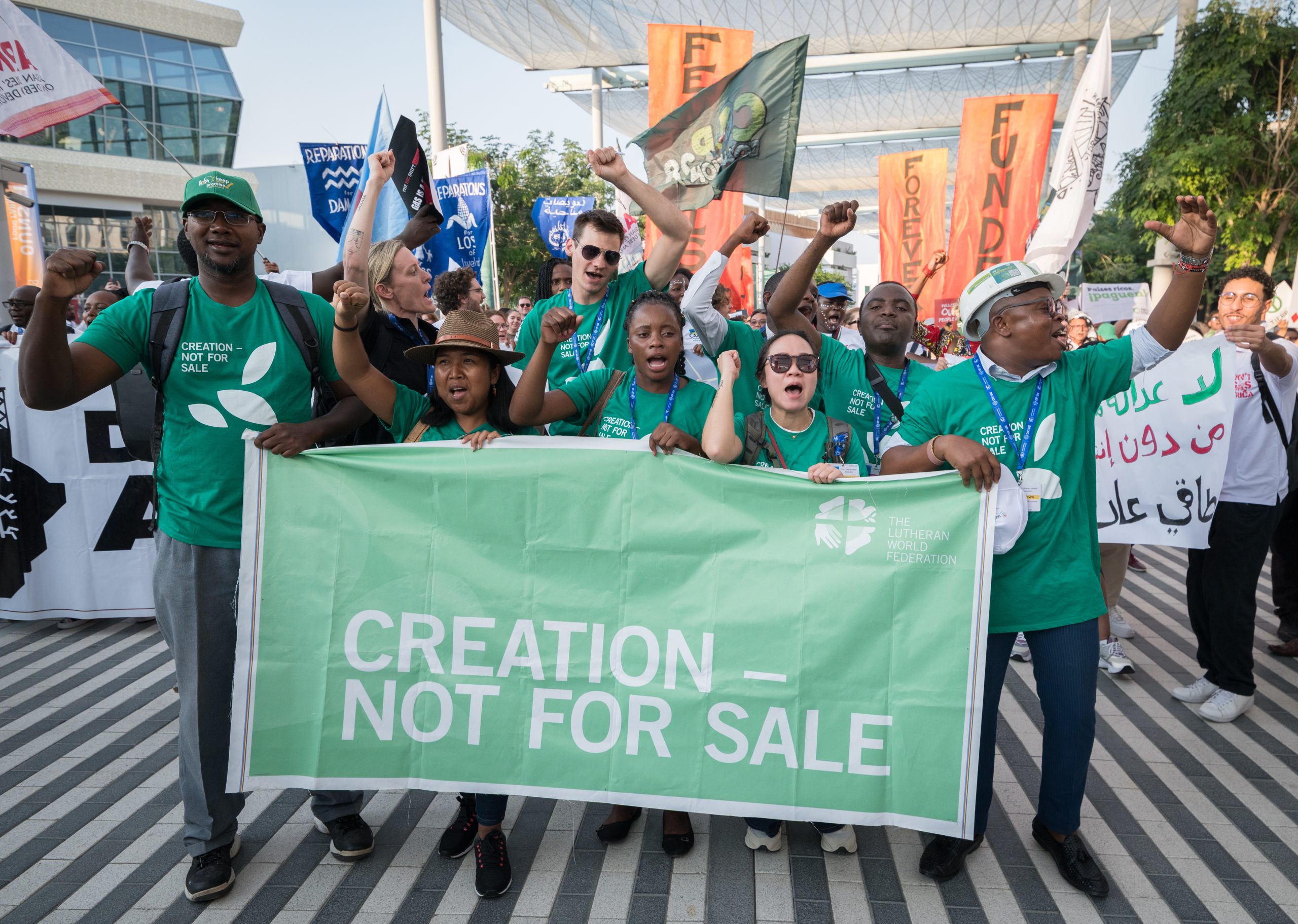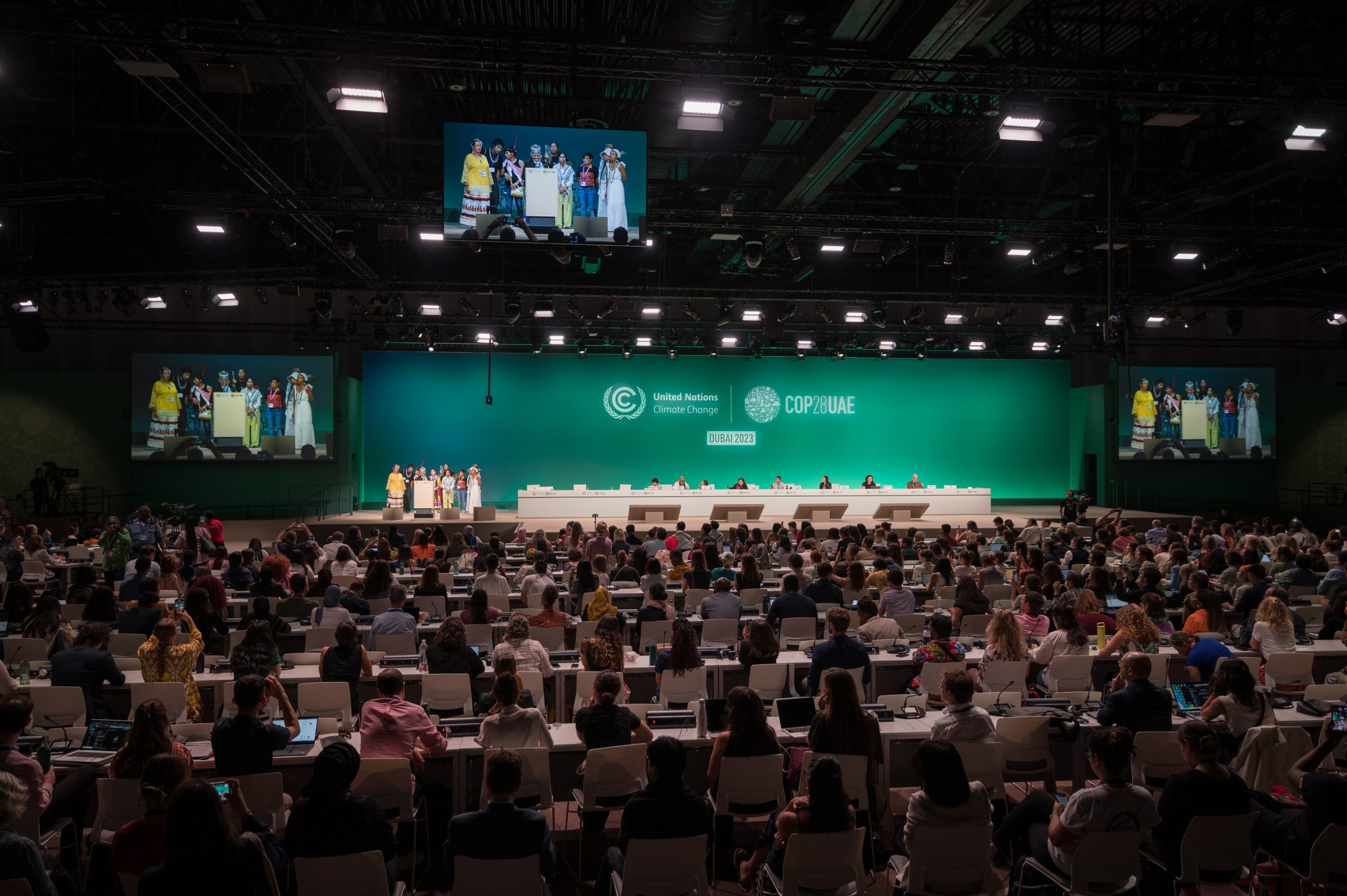What is COP?
COP stands for the Conference of Parties of the United Nations Framework Convention on Climate Change (UNFCCC). It is “the supreme decision-making body of the UNFCCC.”
What is the UNFCCC?
The UNFCCC is an international environmental treaty drafted in 1992 and enacted in 1994 among 198 parties. Both the Kyoto Protocol and the subsequent Paris Agreement are implementation measures of the UNFCCC. The purpose of UNFCC is “to combat dangerous human interference in the climate system.”
Who from the ELCA attended COP28?
This year Christine Moolo (Program Director for World Hunger Initiatives), Savannah Jorgenson (Legislative Coordinator at the California State Public Policy Office) and I were honored to serve as virtual observers with an ELCA delegation. Our colleagues from Witness in Society, Tammy Wahloff (Director of Minnesota State Public Policy Office), Regina Banks (Director of California State Public Policy Office) and Christine Moffett (Program Director of Environmental Policy) served as in-person observers.
Why is Lutheran Disaster Response (LDR) present at COP?
We join hundreds of ecumenical and interfaith partners because climate change is an existential threat to human civilization, per the Intergovernmental Panel on Climate Change (IPCC). First, we have a baptismal calling to “the reconciliation of all creation.” Moreover, the ELCA’s disaster response ministry is already responding to more frequent and severe climate-related disasters. The LDR Initiatives program is responsible for disaster risk reduction work (hazard mitigation and disaster preparedness). Mitigating the worst impacts of climate change – anything above a net 2.0-degree Celsius global temperature rise – is disaster risk reduction. Additionally, LDR does not do this work alone; we participate with other members of the ACT Alliance and Lutheran World Federation from around the world, to coordinate this effort.
How is this disaster response?
LDR is committed to accompanying communities throughout the disaster cycle. In addition to response and recovery, mitigation and preparation are part of this cycle. Additionally, emerging research demonstrates investments in mitigation reduce the cost of future disasters by up to 600%. Simply put, disaster risk reduction is an investment in our collective future.

Delegates of the Lutheran World Federation gather for a Global March for Climate Justice at COP28. LWF/Albin Hillert
Isn’t climate change political?
Yes. The word politics is derived from the Greek word for city – polis (as in metropolis). Anything having to do with our public life together as a society is political, even disasters. This is articulated in the ELCA social statement on Church in Society as the church’s obligation to, “work with and on behalf of the poor, the powerless, and those who suffer, using its power and influence with political and economic decision-making bodies to develop and advocate policies that seek to advance justice, peace, and the care of creation.”
This is easier said than done. I would be remiss if I did not honor the stories of colleagues from areas of high levels of climate skepticism who share that the mention of climate change can shut down an entire conversation. As the Church we are called to preach the truth in ways diverse communities can receive. In some places we may not be able to say the words “climate change,” but we can discuss concerns about the impact of increased severe weather on people’s livelihoods and communities. Climate change, like many problems, will not go away just because we ignore it.
How can I learn more about the ELCA’s experience and impact at COP28?
On Jan. 24, the ELCA delegation from COP28 will share our experiences during a webinar. I am inviting you!
Resister here: https://bit.ly/ELCACOP28webinar
If you have any questions about mitigating climate change, disaster risk reduction, or the LDR initiatives program, please reach out to me at Matthew.Zemanick@ELCA.org
Pastor Matthew Zemanick (he/they) is the Program Director for Lutheran Disaster Response Initiatives.

